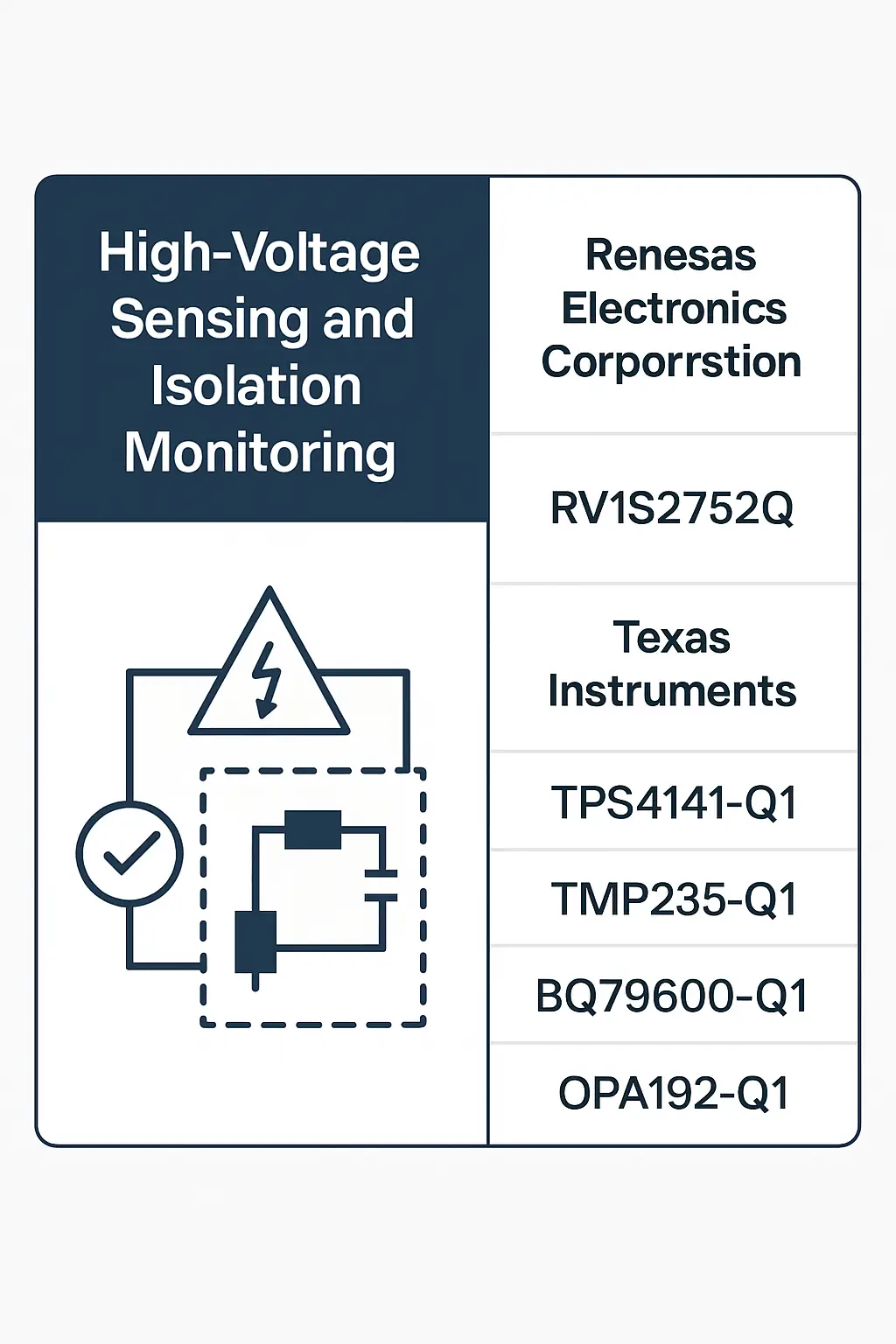High-Voltage Sensing and Isolation Monitoring
The Battery Management System (BMS) is a critical component in modern electrified automotive systems, particularly within High-Voltage Sensing and Isolation Monitoring applications. It ensures the safe, efficient, and reliable operation of battery packs in electric vehicles (EVs) and hybrid electric vehicles (HEVs). The BMS monitors key parameters such as voltage, current, temperature, and state of charge (SOC), while also managing cell balancing, thermal regulation, and fault detection.
Designed for Electrification & Battery Systems, the BMS plays a vital role in optimizing battery performance, extending lifespan, and enhancing overall vehicle safety. It supports high-voltage environments by providing accurate sensing and isolation monitoring, which is essential for preventing electrical faults and ensuring compliance with stringent safety standards.
In Automotive Electronics, the BMS integrates with other vehicle systems, enabling seamless communication between the battery, powertrain, and control units. This integration is crucial for advanced driver-assistance systems (ADAS) and energy management strategies.
Applications of the BMS include electric vehicles, energy storage systems, and industrial battery solutions. It is especially important in high-performance EVs where precise battery control is necessary for optimal range and driving experience. With the growing demand for sustainable transportation, the BMS continues to evolve, incorporating smart technologies and real-time data analytics for improved efficiency and reliability.
Details
High-Voltage Sensing and Isolation Monitoring

Related Parts
| Series Name | Description | Manufacturer Name | Attribute Description |
|---|---|---|---|
| Renesas Electronics Corporation | 5.0 kVrms isolation, 2.5 A peak output current, 15 kV/µs CMTI, 1 MBd data rate, 1.2 V forward voltage, 3.3 V to 5.5 V supply, SO6L package, suitable for industrial and automotive applications. | ||
| Texas Instruments | 36V, 2A synchronous step-down converter, 4V to 36V input, 150μA quiescent current, adjustable output, 2.2MHz switching frequency, automotive-grade. | ||
| Texas Instruments | 40V, 1.5A isolated switch with integrated gate driver and reinforced isolation, 10kVRMS, 8-pin SOIC package, suitable for automotive applications, operating temperature: -40°C to 125°C. | ||
| Texas Instruments | Supply voltage: 2.7V to 5.5V; Accuracy: ±1.5°C (max); Operating range: -40°C to +150°C; Low power consumption: 50µA (typ); Analog output; Integrated temperature sensor. | ||
| Texas Instruments | 24-bit delta-sigma ADC, 3-channel, 64 kSPS, low-power, integrated analog front-end, SPI interface, operates from 2.7V to 5.5V, built-in oscillator, selectable PGA, TI AEC-Q100 qualified. | ||
| Texas Instruments | 4-channel, 24-bit delta-sigma ADC, 64 kSPS max, ±10 V input range, low-noise, integrated analog front-end, SPI interface, operates from 2.7 V to 5.25 V, suitable for automotive applications. | ||
| Texas Instruments | 32-channel battery monitor, 16-bit ADC resolution, ±15kV HBM ESD protection, supports daisy-chain communication, 0.02% voltage measurement accuracy, operates from -40°C to +125°C. | ||
| Texas Instruments | 32-channel battery monitor, 16-bit ADC, ±15V channel input, supports daisy-chain communication, integrated protection monitoring, up to 1MHz SPI interface, operated from -40°C to +125°C. | ||
| Texas Instruments | AEC-Q101 qualified, 4-channel USB ESD protector, 0.5pF capacitance, 8kV IEC 61000-4-2 contact discharge, low leakage current, 2mm × 1.8mm DFN package. | ||
| Texas Instruments | 4-channel ESD protector, 0.5pF capacitance, 6V working voltage, ±15kV IEC 61000-4-2 contact discharge, 1.8V to 5.5V operating range, ultra-low leakage current, SOD-523 package. |








.png?x-oss-process=image/format,webp/resize,h_32)










